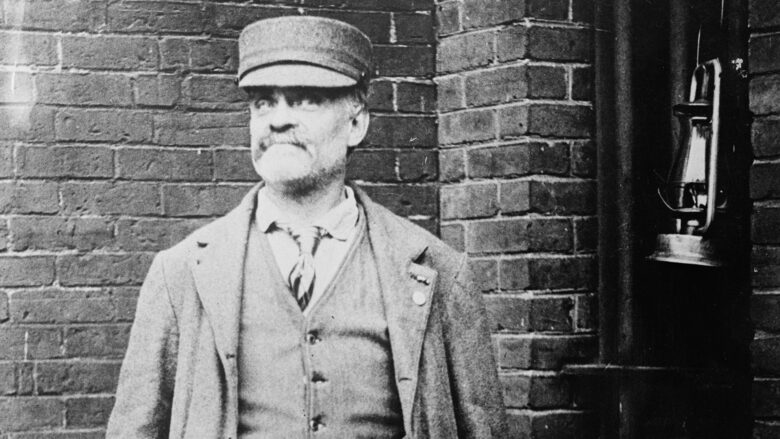True crime is a genre that has captivated audiences for decades. From books to podcasts to TV shows, people have been drawn to stories of real-life criminal cases and the people involved. Whether it’s a tale of a serial killer or a heist gone wrong, true crime stories often hold a certain fascination that is hard to explain. Morbid curiosity is something that plagues almost every human on Earth. Even though we understand that we shouldn’t be drawn to things pertaining to death and dark deeds, they still somehow pull us in. Let’s go over what the best true crime podcast is.
True crime has become a popular genre in recent years, and one of the main reasons for this is its ability to provide a glimpse into the darker side of human nature. The crimes covered in this genre are often violent, shocking, and heinous, which makes us question how someone could be capable of such evil acts. We are drawn to the psychology of the criminal mind and the motivations behind their actions. True crime offers us a chance to explore these issues in a way that is both informative and entertaining.
Another reason why true crime is so popular is that it allows us to satisfy our curiosity about criminal investigations and the criminal justice system. True crime shows and podcasts often delve into the details of a case, from the crime itself to the investigation and eventual trial. This behind-the-scenes look into how crimes are solved and criminals are brought to justice can be fascinating for many people.

Source: aetv.com
Contents
The History of True Crime
The genre of true crime has its origins in the 19th century. During this time, books and pamphlets were published about notorious criminals such as Jack the Ripper or Jesse Pomeroy, a child murderer from Massachusetts. As time went on, these books evolved into modern-day newspapers, magazines and even movies that focused on high profile criminal cases.
Why True Crime Is a Popular Genre
One of the reasons true crime is so intriguing is that it provides a glimpse into the darker side of human nature. The crimes that are covered in this genre are often violent and heinous, and they make us wonder how someone could be capable of such evil. We are drawn to the psychology of the criminal mind and the motivations behind their actions. True crime gives us a chance to explore these issues in a way that is both informative and entertaining.

Source: usatoday.com
The Psychology of True Crime
Perhaps the most fascinating aspect of true crime is the stories themselves. From the notorious to the obscure, true crime stories come in all shapes and sizes. Some of the most well-known cases are those involving serial killers, like Ted Bundy, Jeffrey Dahmer, and the Golden State Killer. These cases often involve a string of murders committed by the same person, and they can span years or even decades. They are usually the subject of multiple books, documentaries, and podcasts, and they continue to captivate audiences to this day.
Types of True Crime Cases
Another type of true crime case that has gained popularity in recent years is the unsolved mystery. These are cases in which the perpetrator of a crime is never caught or identified. Examples of unsolved mysteries include the disappearance of Jimmy Hoffa, the Zodiac Killer, and the Black Dahlia murder. These cases often leave us with more questions than answers, and they can be especially frustrating for those who are invested in the case. So while they may not be as common as other types of true crime cases, they can still offer an interesting insight into the criminal mind.

Source: theguardian.com
Heist and Banks
Heists and bank robberies are also popular in the true crime genre. These cases often involve elaborate planning and execution, and they can result in huge sums of money being stolen. One of the most famous heists in history is the theft of the Mona Lisa from the Louvre in 1911. The case was eventually solved, but not before the painting was missing for more than two years. More recent heists include the 1990 Isabella Stewart Gardner Museum theft in Boston and the 2015 Hatton Garden heist in London. Other famous cases include the Great Train Robbery of 1963 and the Brink’s-Mat robbery of 1983.
White-Collar Crime
White-collar crime is another area of true crime that has gained traction in recent years. These cases involve non-violent crimes committed by professionals or people in positions of power. Examples of white-collar crime include insider trading, embezzlement, and Ponzi schemes. One of the most infamous white-collar criminals is Bernie Madoff, who ran a massive Ponzi scheme that defrauded investors out of billions of dollars.

Source: cnn.com
The Impact on Culture
The impact of true crime on society cannot be understated. These stories often shine a light on issues that may not receive enough attention, such as police misconduct or flaws in the criminal justice system. They can also raise awareness about the victims of these crimes and the impact that they have on their families and communities. True crime has led to changes in laws and policies, as well as shifts in public opinion and perception.
Conclusion
Of course, it’s worth noting that the fascination with true crime can also be problematic. Some argue that the genre glorifies violence and exploits the suffering of victims and their families. Others argue that it can be triggering for survivors of trauma or those who have experienced violence. As with any form of entertainment or media, it’s important to consume true crime with a critical eye and to be mindful of the potential impacts.
Overall, the world of true crime is vast and varied, with something for everyone. Whether you’re drawn to the psychology of serial killers, the intrigue of unsolved mysteries, or the drama of a bank robbery gone wrong, there is no shortage of stories to explore.
